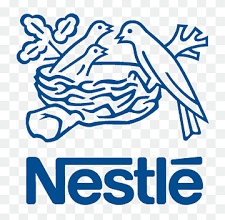MAN Expresses Worries Over High Inflation Rate

The Manufacturers Association of Nigeria (MAN) has seen escalating production cost following high inflation rate in the country.
According to the National Bureau of Statistics (NBS), headline inflation for June 2022 stood at 18.6 per cent indicating a further rise of 0.85 per cent point from 17.75 recorded in the corresponding period of 2021.
On a month-to-month basis, the NBS, also revealed that the headline inflation rate increased to 1.82 per cent in June 2022, signifying 0.04 percentage point increase above the 1.78 per cent recorded in May 2022.
Food inflation also increased to 2.05 per cent, when compared to 2.01 per cent recorded in May 2022, while core inflation declined from 1.87 in May 2022 to 1.56 in June 2022.
The Bureau, identified the major contributory factor responsible for the surge in headline inflation include increase in prices of gas, liquid fuel, solid fuel, garments, passenger transport by road, cleaning, repair and hire of clothing, and passenger travel by air, meat, bread, cereals, fish, potatoes, oil, fat, wine, yam and other tubers.
In broad terms, inflation rate has assumed an upward swing, which of course, signals worsening economic times ahead.
According to MAN, the report revealed that the 18.6 per cent rate portends a gradual journey towards the 18.72 per cent peak inflation rate recorded in January 2017, which it says is a worrisome acceleration of inflation rate that should be halted, especially giving the fact that socio-political and economic activities that trigger spike in inflation are imminent.
Reacting to the situation, Director General, DG, of MAN, Segun Ajayi-Kadir, sated that the implications of the high inflation rate for the Manufacturing Sector include: rising increase in cost of production inputs with trickle down effects on capacity utilization, inventory and profitability of manufacturing firms; higher Monetary Policy Rate, MPR and Lending Interest Rate, which will further constrained access to credit.
The Associated included the increase the cost of borrowing for manufacturers, especially those in the SMI cadre and upward swing in the value of shares for manufacturing concerns listed on the stock exchange.
Ajayi-Kadiri, further said that the situation will also have differing implications like reduction in demand for manufactured products leading to poor sales and turnover; lower competitiveness as the high inflation rate further mount pressures on the already very high-cost operating environment, which may hinder the prospect of beneficial trade in the region and the continent.
The DG, listed others to include- further loss in the value of the Naira; increase the tempo of hoarding dollars; deepening of downward swing of export earnings, which of course will worsen the forex challenge in the country and closure of more companies as the capacity to meet obligations to internal and external stakeholders is greatly impaired.
He identified familiar triggers of inflation in Nigeria, as insecurity, food shortages, shortfall in the supply of raw materials for production of food related products, fertilizers and others not available locally.
Aside, manufacturing, he said the prevailing inflation rate will also impacts the consumers.
He listed some of the implications of the current inflation rate for consumers to include: sharp decline in consumer welfare and excruciating demand crunch for extreme poor; reduction in consumption by the middle class occasioned by continuous erosion of disposable income, high incidence of panic buying and hoarding, which may further worsen the inflation trend.
The Association strongly believed that high inflation is a major indication of macroeconomic inadequacies and failure to take steps to address the contributory factors will further limit economic growth and increase the rate of unemployment in the country.
By reducing purchasing power, high inflation reduces aggregate demand and limits production which eventually result in a fall in employment.
On the flip side of the coin, it will escalate the value of public debt servicing expenditure due to the exchange rate pass-through effect in the face of increase in fuel subsidy cost and rising global oil prices.
The resultant effect is lesser resources for public investment expenditure needed to catalyze and sustain economic growth.
To avert the negative trickle-down effects of high inflation on the economy and the manufacturing sector, MAN advised Government to deploy a bouquet of supply-driven policies back with more structural measures to combat the peculiar inflationary pressures from insecurity, energy and transport cost.
Also to tame the rise it urged the authorities to reduce the reliance of the country on imported products and raw materials by encouraging local sourcing through a comprehensive and integrated incentivized system since Nigeria is largely bearing the brunt of imported inflation.
In addition it advised government to internationally resolve all forex related challenges confronting the productive sector by making a detour from the CBN’s foreign exchange regime that greatly contradicts one of the goals of the National Development Plan, which seeks to attain quick convergence of the foreign exchange rates and sustain effort at improving infrastructural developments and ensure are economically driven to redu




